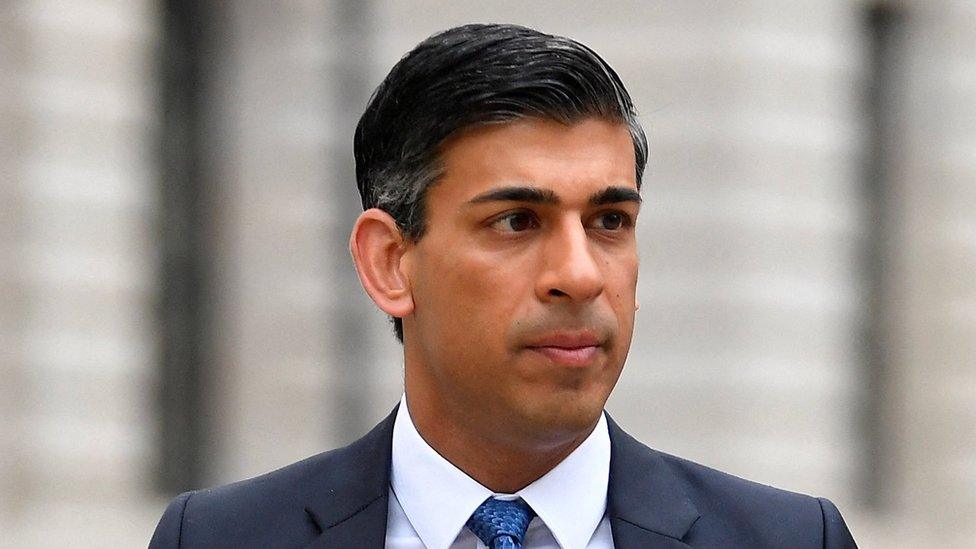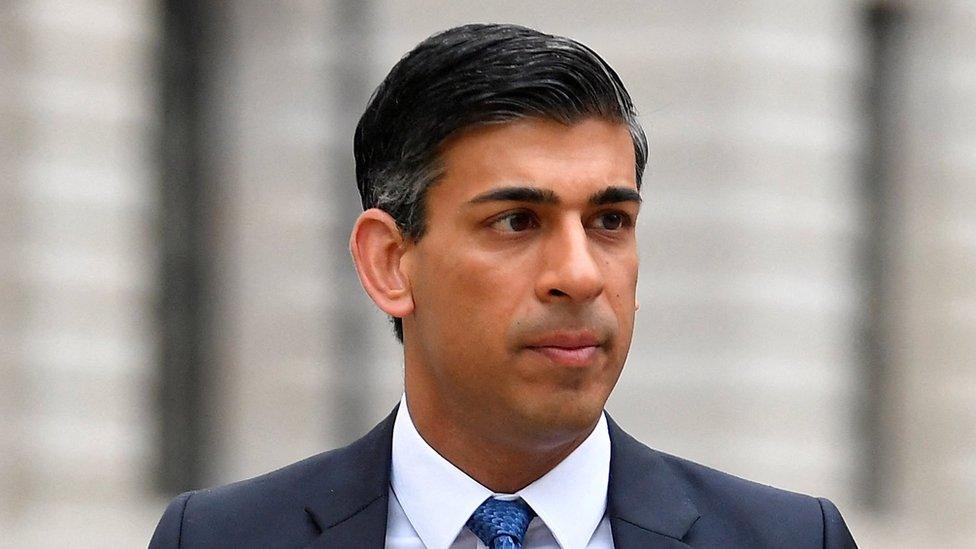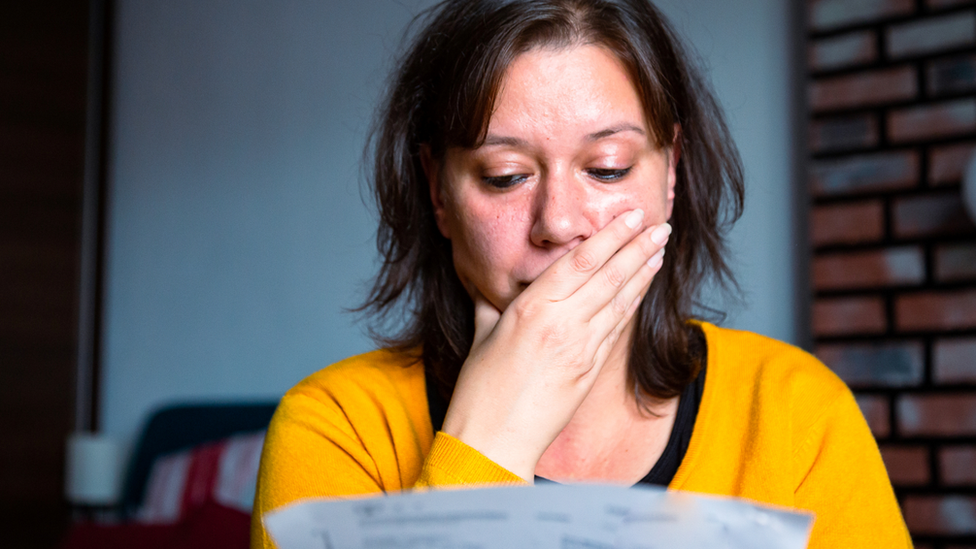What will it take to get inflation under control?
- Published
- comments

Today's astronomical rise in inflation is no less shocking, even though it was predicted.
UK inflation is simply not supposed to hit levels such as 9%, and the statisticians have had to go back in time to remodel historical data, as inflation has not been this high while the Consumer Prices Index has been in existence.
As the Bank of England Governor Andrew Bailey has said, these sorts of rises hit the poorest the hardest. 9% is an average across the population. The older Retail Prices Index measure is already at 11%.
But Mr Bailey's institution has a battle on now to get this under control. The really painful issue is that this rate will sustain and is on course to get higher over the course of this year.
And only this week he acknowledged that there was "not a lot" the Bank could do about four-fifths of the anticipated rise, as it is being imported from globally rising prices for energy and food.
The question now is how quickly will inflation come down from these highs over the next two years.
Economics is a prisoner of geopolitics here. But as inflation gets to double digits, workers, consumers and companies are more likely to start factoring a big fat round number into their expectations of future price rises.
Those projections reveal an uncomfortable truth. The last time inflation hit these levels, it took years, not months, to get it back down again. Only today, petrol and diesel prices hit new records, even after the impact of the chancellor's 5p cut on fuel duty.
While unions are less powerful than they were back then when it comes to wage bargaining, there are some signs around the world that given the circumstances, organised labour will assert itself.
So, numbers of this magnitude create acute social issues. The price rises are highest for goods and services that form the largest part of the spending of the poorest. Poverty will go up, hunger will go up, homelessness will go up, destitution will go up.

Economy slowing down
But when the price rises are so widespread and visible in the energy direct debits and prepayment meters of households, they also create a macroeconomic problem, draining the economy of spending power and slowing it down to a halt, or worse.
So the government will face pressure to do more, and yet an inflation rate this high creates instant multibillion pound problems that make that job harder. A-real terms pay rise for the frontline workers that everyone clapped for during the pandemic? Increasing pensions by 9% next year after the peak of the inflation? Rail fares? Student loan repayments? It would all add up.
It is notable that the UK now has the highest annual inflation of the G7 group of major economies. That could change, but right now prices in France, which capped energy bills ahead of the presidential election, are rising half as fast as they are here.
The combination of economic stagnation and high inflation is what is known as stagflation. A hopefully brief bout of it is on the way. The textbook response to it is higher interest rates from the central bank, and higher spending or lower taxes from the government.

The signs are that the Treasury is developing a further package. The overall hit to disposable income from energy price rises is the equivalent of a rise in the basic rate of income tax of several pence. An expanded Warm Homes Discount grant scheme, more repayable discounts to lower bills, or tax cuts are all on the cards.
More government support?
The chancellor has said further support won't come until autumn, but when I put to him last week that he had the information he needed to act sooner, he did not really object. He set a high bar during the pandemic in terms of extending furlough support, and the scheme explains the near-half century lows in unemployment we are seeing now.
In this energy crisis his instincts have been that too much further borrowing and spending will add to the inflationary problem. It is "whatever we can afford" rather than "whatever it takes".
But with dark clouds gathering beyond the energy markets, in the value of assets on the stock market, and concerns over the impact of rate rises on the property markets, the headwinds are getting stronger, bumpier and more unpredictable for households and the economy as a whole.
- Published17 May 2022

- Published16 May 2022
- Published16 May 2022

- Published16 May 2022

